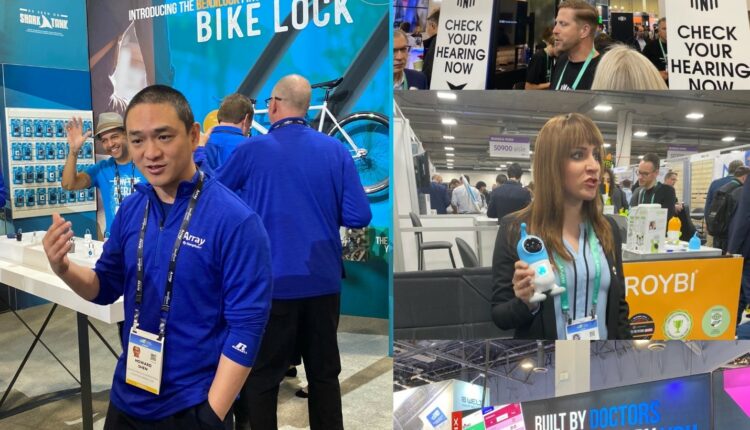Small Businesses Bring Big Innovation to the Consumer Electronic Show
By Jamie Saloom, Assistant Chief Counsel
Last week I had the opportunity to attend the Consumer Electronics Show as part of the Consumer Technology Association’s Leaders in Technology Program. As a first-timer to the world’s biggest technology show, I wasn’t sure what to expect. There was groundbreaking technology of course, including things like parallel reality displays and flying cars. But the truly mind-blowing thing that stood out to me, was how much innovation was being brought to the floor by big companies because of the ingenuity of small companies.
Indeed, the parallel reality display technology Delta CEO Ed Bastian introduced to the world during his keynote speech, was created by the small start-up company Misapplied Sciences. Delta, along with a number of other corporate giants like Proctor and Gamble, appear to know that the best innovations are coming from outside, and have invested in their own incubators to find products and solutions that address the diversity of their customers needs and desires.
In my role as an advocate for small businesses, I want to know what kinds of federal policies keep small businesses from getting off the ground and making that first big deal, like the deal that Impossible Foods first made with Momofuku to sell it’s now ubiquitous Impossible Burger, or the deal that start-up company Benjilock made with Hampton Products to sell its patent rights after it debuted its fingerprint padlocks on the TV show Sharktank. So, when given the opportunity, I spent two days touring the CES show floor talking to founders, and attending policy panels featuring policy makers from federal agencies and Capitol Hill.
On the floor, most of the small companies I spoke with had confronted legal or policy barriers along their journeys to CES. For example, Dr. Christopher Burrow with Humetrix, a company that has developed mobile platforms that consumers can use to consolidate and track their healthcare data, shared how the company is awaiting final rules on Interoperability and Patient Access from the Centers for Medicare and Medicaid that would make patient data more useful through standardized formats. The founder of Nuheara, a company that produces earbuds with both noise-reduction and hearing enhancement capabilities, spoke to me about how he is eagerly awaiting FDA guidelines for marketing over the counter hearing aids.
Policy-makers at the FTC and FCC spoke at length about the approaches their agencies are taking with respect to consumer protection, national security, and the communications networks that will enable much of tomorrow’s technology. Protecting consumer privacy is first on policy-makers minds, as well as the minds of companies that are collecting an ever-increasing volume of consumer data. FTC commissioners discussed potential updates to the agency’s Children’s Online Privacy Protection rules, as well as their uniform desire for updated legislative authority on consumer privacy. I also heard robust discussion on issues related to online platform liability for user-generated content, and the implications of various proposals on free speech and technological advancement. Panelists raised recently proposed Department of Commerce regulations on securing the Information and Communications Technology and Services Supply Chain, and the potential impact of those rules on the consumer technology industry. It was nice to hear from FCC commissioners about their aim to ensure that our telecommunications infrastructure doesn’t present risks to national security, while also ensuring that small telecommunications providers don’t bear all the associated costs. FCC Commissioners on both sides of the aisle appeared committed to “finding, fixing, and funding” the security vulnerabilities in our communications networks through the agency’s proposals to secure our telecommunications supply chain, while giving affected small carriers support if they are required to replace vulnerable equipment.
Between floor tours and policy panels, I also had a chance to catch up with government counterparts from SBA’s Office of Innovation and Investment and the U.S. Patent and Trademark Office who joined forces to help small business Get in the Game at a booth in Eureka Park, the famed start-up arena at CES where new businesses were furiously pitching and deal-making. There they gave small businesses information about how to protect their intellectual property and find federal funding available through SBA’s SBIR/STTR programs.
Overall, the two days at CES taught me that the future is here, but it should be our goal to ensure that the costs and benefits aren’t unfairly distributed as policy-makers respond to new challenges. I’m looking forward to what 2020 brings in technology policy, and hope to bring small businesses concerns to the forefront of those discussions.
Jamie Saloom is the Assistant Chief Counsel for Intellectual Property and Telecommunications. She can be reached at Jamie.Saloom@sba.gov.


Comments are closed.